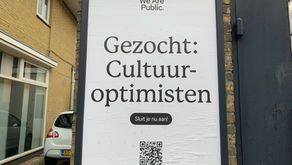Vyners School, Uxbridge
- Feb 24, 2017
- 2 min read

Travelling to Vyners School, all the way up the Metropolitan Line, gave sufficient time to muse about how so much suburban housing could have been built in such a short period of the 1920s and 30s, presumably on green space and in the countryside; and how it must have been relatively affordable to a broad group of workers. Our locality in south London now resembles, I'm told, Dubai, with new luxury tower blocks appearing weekly, or so it seems. But they seem to stay mostly empty, intended for investments and expensive rentals. The north-western suburbs don't have that atmosphere, and seem thoroughly lived in.
Vyners School is also a simple building on a well-populated site, with breezblocks and prefab units in evidence. Music teacher Dan Cullum pointed out the bare, porous brickwork of the music block and told me I should be pleased to be making my visit on a warmish February day. But as so often there seemed to be a positive ratio at work between basic-looking surroundings and creativity. I was mightily impressed to meet the nine-strong A-level Music class from this 11-18 co-ed Academy. The music being written ranged from film scores (one ingenious young woman was subtly structuring her own film scenario to develop in tandem with her orchestral score) to minimalism. There was some quite properly scored orchestral music and a carefully notated guitar-drum combo. While I talked to individuals, the rest of the class worked away onscreen at their compositions, concentrating through a session that lasted several hours. Seeing learning situations like this, you wonder why Music isn’t the most respected of all school subjects.
Of course school-age students are now able to work at this level thanks to the availability of music notation software. I don’t want to imply that it makes their work easier, more that it enhances what they already can do. For them, it’s a great help to hear live sound, even if it is an imperfect representation of what the real thing would sound like. It’s particularly advantageous to hear the progression of musical events happening in real time. Discussions between professional composers often focus on the snags of the various software options. And there is a general feeling that you shouldn’t rely on the computer to do your work for you – as if that was possible. But on my journey back through Metroland I marvelled at the emergence of this momentous technology which was non-existent at the start of my own working lifetime.






